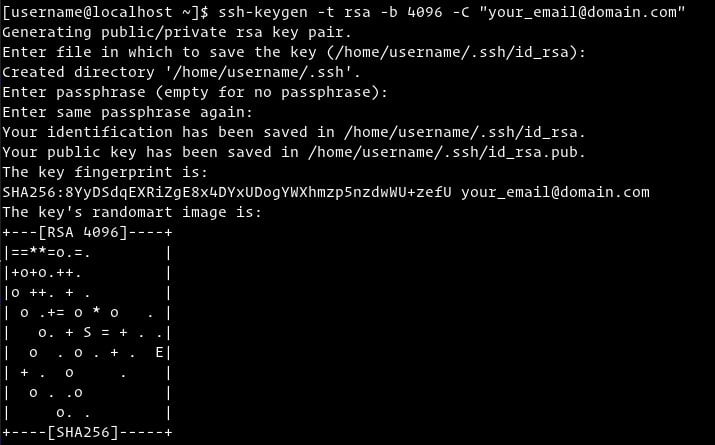Centos Generate New Ssh Host Key
This is an unusual topic since most distribution create these keys for you during the installation of the OpenSSH server package. But it may be useful to be able generate new server keys from time to time, this happen to me when I duplicate Virtual Private Server which contains an installed ssh package.
OpenSSH require different keys depending if you use SSH1 and/or SSH2 protocol. All keys are generated by ssh-keygen, that one should be available on your system with the ssh package. The receipt is almost the same as for generating your own keys, except that you should use an empty passphrase. Default key lengths are also appropriate (2048 bits for rsa and 1024 bits for dsa)
SSH1 protocol
We’ll show you, how to set up SSH Keys on CentOS 7. SSH (Secure Socket Shell) is an open source, UNIX based, network protocol that provides users with a secure and encrypted way to login to remote computers, transfer files securely between the computers (SCP), command execution on remote servers, automate tasks between multiple servers on the network,. A host key is a cryptographic key used for authenticating computers in the SSH protocol. Host keys are key pairs, typically using the RSA, DSA, or ECDSA algorithms. Public host keys are stored on and/or distributed to SSH clients, and private keys are stored on SSH servers. I'm having issues setting up a different CentOS account with its own pair of SSH keys. I have created the required files but when connecting with Putty it. I'm trying to create an ssh key for another user. I'm logged in as root. If you generate the key for the user you also have to have a secure method of getting the private key and it's pass phrase to the user. Which you could append to the user's /.ssh/authorizedkeys on any destination server.
How To Ssh Into Centos

For SSH1 protocol, you need a rsa1 key generated has follow:
SSH2 protocol
https://treenic670.weebly.com/blog/impossible-creatures-2-download-mac. For SSH2 protocol, you need two keys, one RSA key and one DSA key generated has follow:
Centos Ssh Authorized Keys
Since January 2011, OpenSSH also support ECDSA key, you may generate a new one using:
SSH allows the use of encryption keys to be used to allow logging into a system instead of having to remember a plain text password.
This is great for use in scripts, and automated tasks, but can be a problem is anyone else ever gets the keys somehow.
If the keys become compromised, you must generate new SSH keys.
With the increasing use of virtual servers nowadays, if you are creating new servers based on a image file/backup, you may find the new server has the same keys as the original. Openssl generate csr from existing key. You should generate new SSH keys on the new server if that is the case.
Generate new SSH keys:
Restart the SSH server for the new keys to take effect.